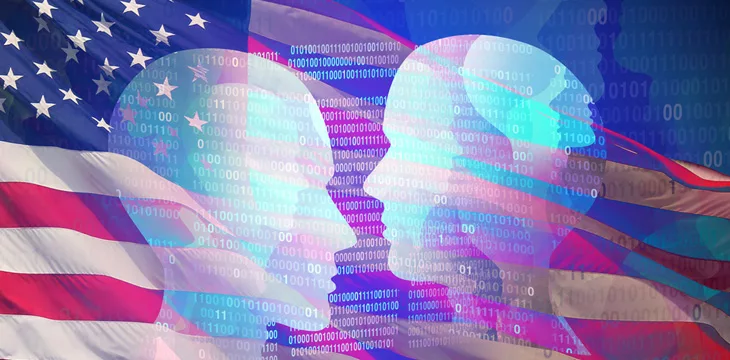|
Getting your Trinity Audio player ready...
|
A recent scandal involving actress Scarlett Johansson and OpenAI has revived a push by United States legislators to regulate artificial intelligence (AI) impersonation in the creative industry.
The NO FAKES Act was introduced in late 2023 by Senator Chris Coons (D-Del.), who chairs the U.S. Senate’s Intellectual Property Committee. It seeks to strike a balance between “defending individual rights and fostering AI innovation and creativity,” Coons stated in a Senate hearing a month ago.
Since ChatGPT exploded and AI became mainstream, the question of how far regulations should go to protect intellectual property (IP) for creatives has been hotly contested. However, Johansson’s feud with OpenAI seems to have revived the call for regulators to urgently step in and protect musicians and actors.
The actress alleged that ChatGPT’s latest version, which comes with a voice assistant, sounded “eerily similar” to her. Johansson spoke out against OpenAI, stating that she was “shocked, angered and in disbelief,” which led the company to take down the voice while still denying the accusations.
The debacle has reignited conversations on AI regulations, and Washington is now more eager than ever to move forward with legislation, reports Yahoo Finance, citing Senate aides.
“Songwriters, actors, and our incredibly talented creative community deserve the right to own their voice, image, and likeness,” stated Marsha Blackburn (R-Tenn.), the leading Republican supporting the bill.
The music industry has been one of the worst hit by AI impersonation. As voice cloning AI technology becomes cheaper and more accessible, users are imitating the voices of famous musicians, including Ariana Grande, Drake, and Tupac, without their consent. This has seen musicians band together to support tough measures on AI impersonation.
At a recent event dedicated to lobbying for regulations, Grammy Award winner Sheryl Crow called for “parameters and guardrails.”
“We’ve seen artists already whose voices have been used after they’ve passed on. We’re also seeing artists being used when they have nothing to do with something that’s been put out, and that’s terrifying,” she stated.
For now, Congress is finalizing the fine details of the proposed law, with sources revealing that Senators are focused on not pre-empting existing and upcoming state laws.
One issue that has divided opinion is how long the bill should restrict the licensing of an artist’s digital replica. The draft version has settled on 70 years, which matches existing regulations relating to copyright protection. Movie makers want this cut down drastically while most musicians are lobbying for the period to last perpetually.
The proposed framework’s biggest challenge is time. Congress has six months left before the November election, which is already taking center stage and detracting from legislative initiatives.
In order for artificial intelligence (AI) to work right within the law and thrive in the face of growing challenges, it needs to integrate an enterprise blockchain system that ensures data input quality and ownership—allowing it to keep data safe while also guaranteeing the immutability of data. Check out CoinGeek’s coverage on this emerging tech to learn more why Enterprise blockchain will be the backbone of AI.
Watch: Transformative AI applications are coming

 07-03-2025
07-03-2025 





